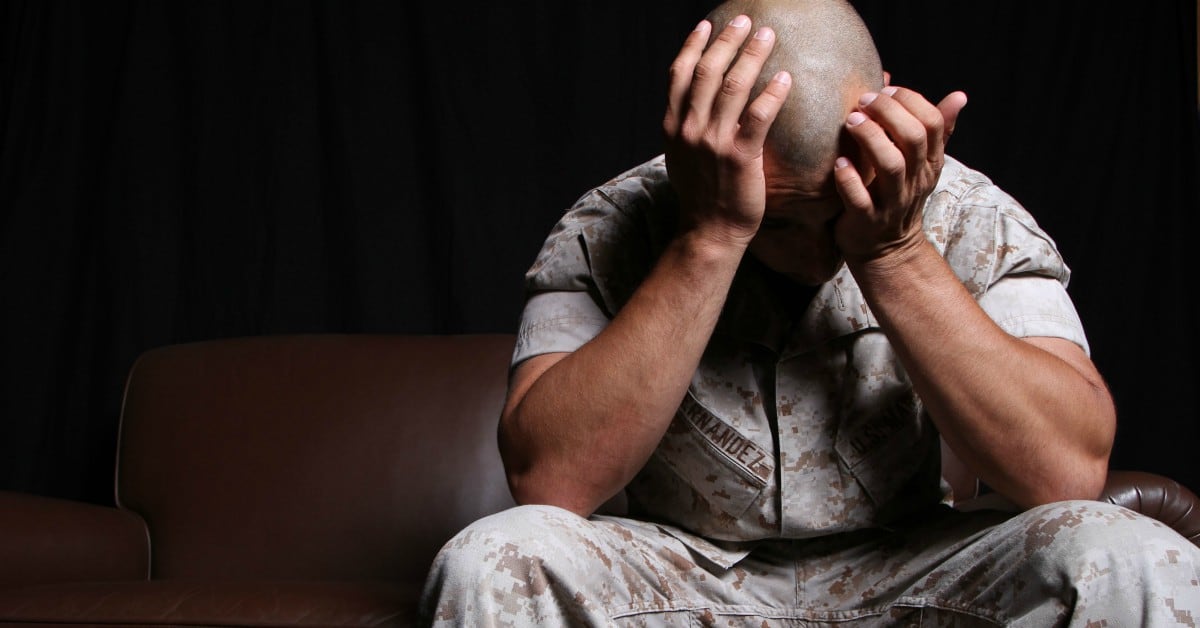Since the start of Gen. Robert Neller’s tenure as commandant in 2015, nearly 224 Marines have ended their own lives. That’s more Marines than an entire rifle company, he noted in a recent two-page letter on mental wellness.
In 2018, 354 active and reserve Marines attempted suicide, and 77 Marines died, numbers that are greater, Neller wrote “than any previous year recorded."
In his letter to the entire Corps, posted via Twitter in May, Neller called on Marines to address “collective mental wellness," spiritual fitness and to seek help to combat the suicide epidemic across the Corps.
“Let me be clear up front, there is zero shame in admitting one’s struggles with life — trauma, shame, guilt or uncertainty about the future — and asking for help,” Neller wrote.
Now, a Marine commander has decided to push the top Marine’s message a bit further by calling suicide “shameful."
In an email he sent to staff, which was obtained by Marine Corps Times, Col. Dom D. Ford, the commander of Marine Corps Communication-Electronics School at Twentynine Palms, California, called on Marines to read some scripture to boost their religious and spiritual wellness and help combat the suicide epidemic.
RELATED

“Suicide is a shameful act. Period. Getting help is not,” Ford wrote to Marines under his command. "Life isn’t fair, and every day won’t be rainbows and sunshine.”
The colonel explained in the email that increased mental health issues may be a “byproduct” of a “godless age” amid a “rapid cultural and technological shift” that has resulted in a “less spiritually fit” populace.
To address the problem, Ford says, people should “spend less time in front of a screen," put down their smartphones, “send flowers instead of an emoji," go out more, “attend a religious service — more than once” and to read scripture.
The colonel wrote in the email that he was echoing the sentiments that the commandant wrote in his wellness message.
But he may have taken it too far.
“Spiritual fitness has been shown to be an important part of overall well-being and promotes mission readiness,” officials at Training and Education Command told Marine Corps Times in an emailed statement regarding Ford’s email.
“However, the Marine Corps does not promote any specific religious tradition or practice. While religion may play an important role for some individuals in their spiritual development, it is not the only way to be spiritually fit. The practice of religious beliefs is a personal decision,” the TECOM officials wrote.
While spiritual fitness and faith have been consistent themes among the Corps’ leaders when discussing the suicide crisis, religion has rarely been invoked.
That is in part due to its potential to impact the perceptions of troops who may question the impartiality of commanders who are charged with leading troops who hold varying religious beliefs, or are atheists.
The 1974 Supreme Court case Parker v. Levy ruled that First Amendment freedoms are restricted when it can impact good order and discipline in the Armed Forces.
But, while Ford’s message leaned harder on religion, his message was not too far removed from Neller’s wellness letter, as both derided the scourge of social media and its impact on mental health, among other complex issues at the root of the suicide crisis.
“Perhaps our culture is shifting away from a time when faith was a more central part of out lives — religious-based faith, a commitment to a greater cause, or just believing in each other, certainly a faith in something great than ‘me,’” Neller, wrote in his letter.
In his email, Ford cited a 2017 study on veteran health issues that boasted of the health benefits of religion and spirituality to include reduced mental health issues, PTSD, depression, and alcohol disorders.
The email did not name the specific study.
But a 2017 study titled, “Religion, spirituality, and mental health of U.S. military veterans: Results from the National Health and Resilience in Veterans Study,” contends that having a high religion/spirituality score has mental health benefits related to PTSD, and depression, among others.
“Higher levels of R/S [religion/spirituality] were also strongly linked with increased dispositional gratitude, purpose in life, and post-traumatic growth,” the study said.
However, Neller did not specifically address suicide as being shameful in his memo, but he did call out Marines for not addressing their mental health issues.
“It is not okay, however to ignore your mental health to the point where you are not able to make sound decisions or end up taking an irreversible action that leaves behind teammates, family, and those who care about and depend on you,” Neller wrote.
The National Alliance on Mental Illness notes on its website that feelings of shame and stigma can often prevent people from talking openly about their problems.
RELATED

“The Marine Corps has a critical role in educating Marines and their families about suicide prevention, the mission-critical role of mental wellness, and how to access services that are available to help Marines navigate the stressors of life,” officials with Training and Education Command said.
“Maintaining positive mental health is as important as maintaining physical health. Spirituality/personal faith is one part of the equation. It is important to maintain a balance in all areas of one’s life,” Training and Education Command said.
Shawn Snow is the senior reporter for Marine Corps Times and a Marine Corps veteran.





